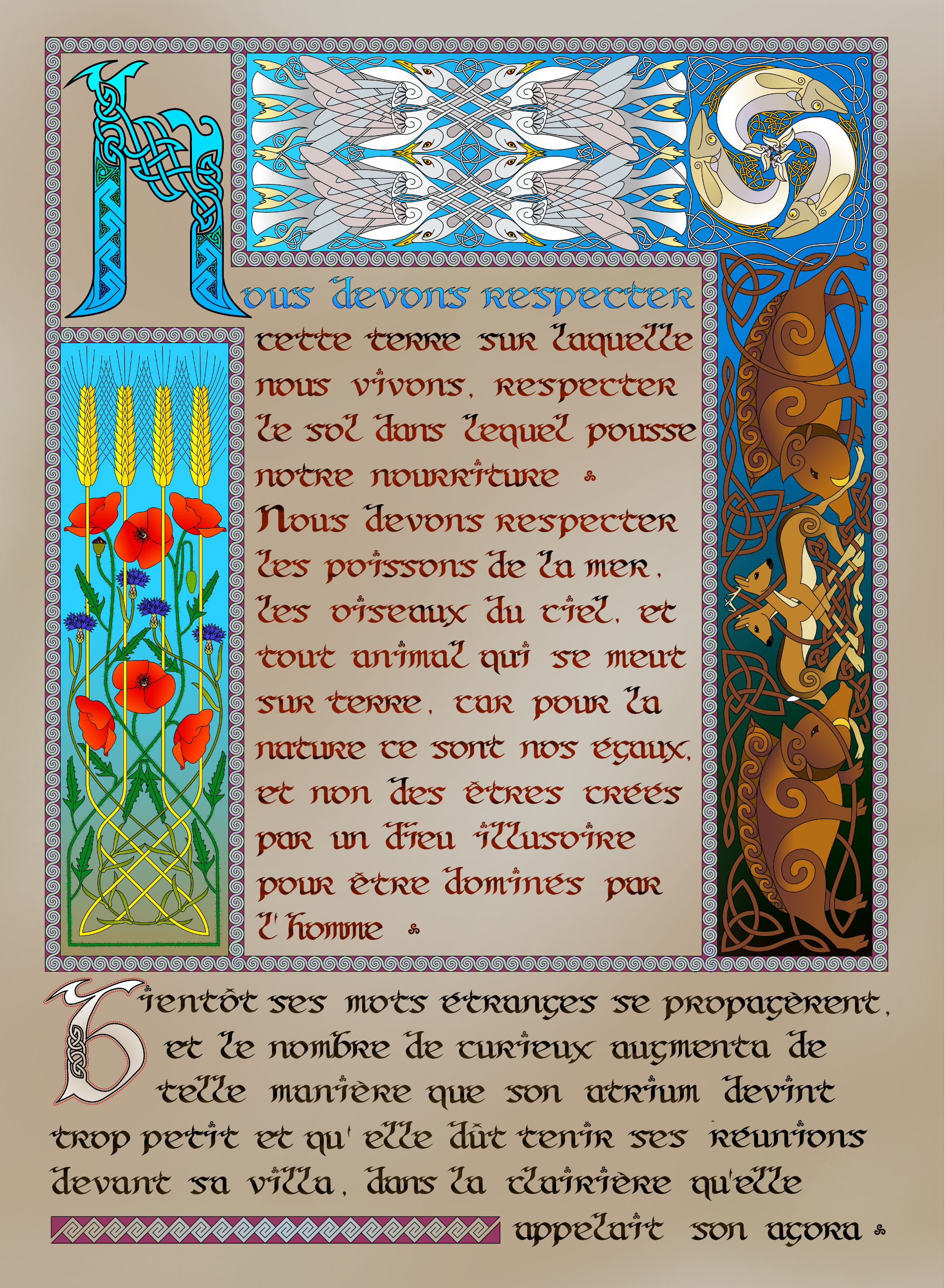fol. 7r
Nous devons respecter cette terre sur laquelle nous vivons, respecter le sol dans lequel pousse notre nourriture .
Nous devons respecter les poissons de la mer, les oiseaux du ciel, et tout animal qui se meut sur terre,(1) car pour la nature ce sont nos égaux, et non des êtres créés par un dieu illusoire pour être dominés par l'homme.
Bientôt ses mots étranges se propagèrent, et le nombre des curieux augmenta de telle manière que son atrium(2) devint trop petit et qu'elle dût tenir ses réunions devant sa villa, dans la clairière qu'elle appelait son agora(3).
(1) Dahut se réfère ici à Genèse 1.28:
"Dieu les bénit, et Dieu leur dit: Soyez féconds, multipliez, remplissez la terre, et l'assujettissez; et dominez sur les poissons de la mer, sur les oiseaux du ciel, et sur tout animal qui se meut sur la terre."
(2) L'atrium romain classique était la partie du bâtiment ouverte aux visiteurs: une vaste pièce couverte, carrée ou rectangulaire, le toit ouvert au centre.
(3) L'agora était la place du marché d'une ville de la Grèce antique. C'était principalement un lieu de rencontre et de rassemblement pour les citoyens libres (les hommes, car le travail était généralement effectué par les femmes et les esclaves). Ici, les gens venaient pour entendre les dernières nouvelles et pour être enseignés par toutes sortes de philosophes.
fol.7r
We must respect this land on which we live, respect the soil in which our food grows.
We must respect the fish in the sea, the birds in the sky, and any animal that moves on the ground,(1) because for nature they are our equals, and not beings created by an illusory god to be dominated by man.
Soon her strange words spread, and the number of curious people increased in such a way that her atrium(2) became too small and that she had to hold her meetings in front of her villa, in the clearing she called her agora(3).
(1) Dahut refers to Genesis 1.28:
God blessed them and said to them, “Be fruitful and increase in number; fill the earth and subdue it. Rule over the fish in the sea and the birds in the sky and over any animal that moves on the ground.”
(2) The classical Roman atrium was the part of the building open to visitors: a large covered space, square or rectangular, with the roof open in the center.
(3) The agora was the market place of a city in ancient Greece. It was primarily a meeting and gathering place for free citizens (men, as work was usually done by women and slaves). Here people came to hear the latest news and to be taught by all kinds of philosophers.
Cliquez l'image pour une meilleure qualité.
Click on the picture for a better quality.

